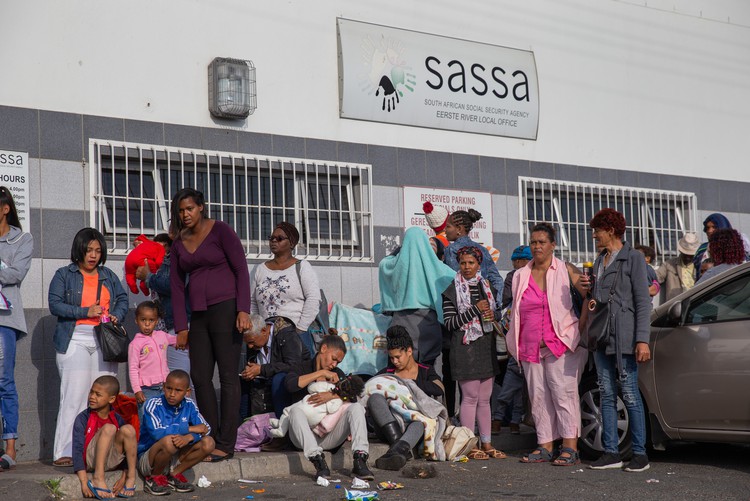
19 June 2025
The National Treasury has told SASSA that it needs to meet conditions attached to its budget allocation, or its budget will be withheld. Archive photo: Ashraf Hendricks
National Treasury could withhold funds to the South African Social Security Agency (SASSA) if it finds that conditions attached to its budget allocation are not being met.
SASSA CEO Themba Matlou on Wednesday told Parliament’s portfolio committee on social development that they have already started implementing a review process on social grants to comply with Treasury’s requirements.
The agency must submit quarterly progress reports before the end of July and October. Reports must include the number of grants reviewed, suspended or cancelled; savings; and any implementation challenges. SASSA must also strengthen its income verification, biometric systems, and other database cross-verifications.
According to the Treasury’s budget allocation letter, SASSA must: introduce bank income checks on several grants; conduct large-scale database checks at least twice a year; finalise agreements with SARS and NSFAS to verify beneficiaries’ income; and intensify biometric checks on suspicious applications immediately.
These reviews have already been implemented for different grants. Beneficiaries affected so far include those receiving child support, old age, disability or care dependency grants who are flagged for undisclosed income or using alternative forms of identification. These individuals will have their grants withheld until they complete an in-person verification and review at a SASSA office. This has already caused challenges for some beneficiaries.
The agency will also run mandatory cross-checks with departments like Home Affairs and Correctional Services, as well as the Unemployment Insurance Fund. These checks are expected to increase.
About 45% of the population depends on social grants. On Wednesday, MPs voiced concerns about how SASSA’s new conditions and reviews are impacting poor households.
The Department of Social Development, which oversees SASSA, has been allocated R285-billion for social grants in the 2025/26 year. This includes money for grant increases announced in April. However, the allocation drops to R260-billion in 2026/27 due to the planned discontinuation of the Social Relief of Distress (SRD) grant.
Committee chairperson Bridget Masango (DA) said she has received “floods and floods of communication” from people struggling to access their grants due to SASSA’s reviews.
“I can already give you preliminary experiences of beneficiaries and would-be beneficiaries of these life-saving grants, as it’s delaying the payment of the grants and keeping them in an uncertain space,” she said.
Paulnita Marais (EFF) criticised the verification process for disproportionately affecting rural households. She spoke about elderly caregivers who cannot visit SASSA offices for in-person verification because they either can’t afford the travel costs or have no SASSA office nearby.
“More and more people are sending us emails, WhatsApps and SMSs” about difficulties with SRD verification and in-person reviews. “The verification is good for what you’re doing… but what about the people struggling with it?” she asked.
Alexandra Abrahams (DA) said SASSA should meet beneficiaries halfway. “You’re asking them to present themselves, but it costs them at least R150 in urban areas to get to an office, if not more in rural areas. So what happens if someone says, ‘I actually don’t have money to present myself’? Are you just going to cut their grants?” she asked.
Responding to the concerns, Matlou said SASSA is aware of the public’s frustration.
“Throughout customer and beneficiary education, we do emphasise that citizens have a responsibility to assist the government to save money,” he said, adding that beneficiaries need to notify SASSA when their financial circumstances have changed.
Matlou committed to submitting regular reports to the committee on the implementation of the review process.
SASSA’s acting chief information officer Jabulani Makondo said the agency was rolling out self-service kiosks at some offices and is developing systems to allow for remote identity verification for beneficiaries whose grants have been withheld.
“The bigger plan is to make biometrics compulsory for all applicants, whether you are trying to access the social assistance programme with or without identification,” Makondo said.